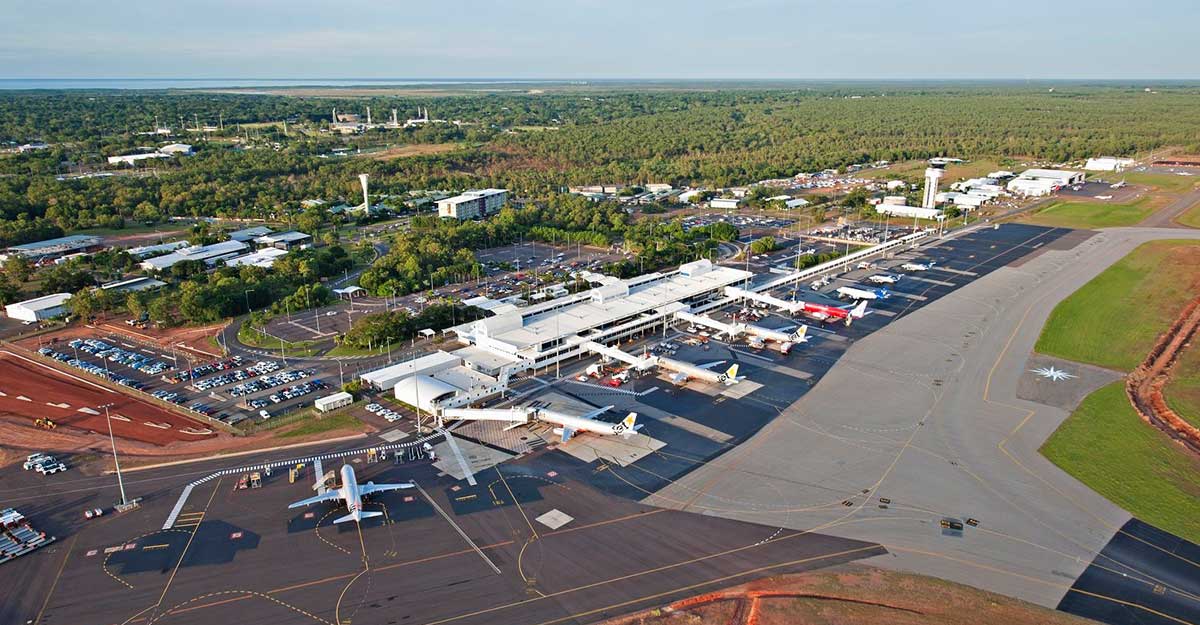Business bulletin: 18 June 2020
Northern Territory electricity reforms

The Northern Territory Government has announced priority electricity market reforms to address system security and reliability, encourage private investors and maximise the amount of renewable power in the network.
These priority electricity market reforms will encourage investment in innovative solutions to have the challenges of a modern energy market. Better integration of new, cleaner and cheaper power technologies in our electricity systems will boost industry and create jobs for Territorians.
These reforms will:
- improve coordination of solar and gas-fired generators
- ensure there is sufficient generation capacity available to meet consumers’ needs
- facilitate payments between retailers and generators
- improve the efficiency of the provision of essential power system security services (system services).
Electricity industry stakeholders will be fully consulted on the detail of the reforms and their implementation through stakeholder workshops and formal consultation papers.
The delivery of the government’s priority reform program will be overseen by a Design Development Team, comprising officers from the Economic Policy unit of the Department of Treasury and Finance and the Office of Sustainable Energy within the Department of Trade, Business and Innovation.
Two consultation papers have been released along with an invitation to join a stakeholder working group.
For more information about the consultation papers and working group view Northern Territory Electricity Market Priority Reform Program.
Connecting Territory workers to jobs

An online jobs portal is helping Northern Territory businesses find the right staff for the job.
The Territory Jobs Hub, which was set up by the Territory Government, is a free online service.
Teresa Holdsworth, project manager at the Business Enterprise Centre in Darwin, is a big fan of the recruitment site after finding an outstanding administration officer.
“When COVID-19 struck, we were busier than ever after setting up a helpline for businesses needing advice,” she says.
“So we recruited a hospitality worker who was unable to work because of the lockdown.
“She was a great asset but loved the hospitality industry and went back to her old job when the lockdown ended.
“So we needed to get a replacement as soon as possible.”
Teresa looked on the Territory Jobs Hub and found the profiles of about 100 people with administrative experience.
A filtering system helped identify three or four jobseekers with the right qualifications.
Darwin-born Rhiannon Plume was interviewed on Friday and started work the following Monday.
“We needed someone with strong administrative and customer service skills who could support our team through a very busy time. Rhiannon proved that she has all that and more.”
Rhiannon, who has just returned home to Darwin after four years in Queensland, says: “This is a really good job. It’s very fast-paced and I’m enjoying it.”
Jobseekers are encouraged to create a profile on the Territory Jobs Hub.
Notifications of work opportunities will then be sent to their phone.
Businesses looking for workers can also create an account and use the portal to connect with jobseekers.
As soon as a jobseeker accepts a connection, the business will be able to access their profile and CV.
New flights provide support for Territory exporters

New freight flights, operating three times a week are now available to assist Territory’s agricultural producers to export their products overseas via Brisbane for the next six weeks subject to market interest.
The flights are supported under the Australian Governments International Freight Assistance Mechanism (IFAM) which is a temporary measure intended to help commercial air freight supply chains remain open during coronavirus (COVID-19).
The flights are as follows:
- Tuesdays, Wednesdays and Thursdays
- Departing DRW 1745, arriving BNE 2205.
IFAM is using a range of market-based mechanisms to maintain existing supply chains and to help stabilise the commercial market for air freight.
The Australian Government is meeting a portion of the airfreight cost, however exporters will still need to make a financial contribution towards the cost of their freight. These costs remain substantially higher than pre-coronavirus (COVID-19) levels and are likely to remain so in the medium term.
For more information about IFAM rates, go to the Australian Government Australian Trade and Investment website.
The freight assistance is available for a short period, interested exporters should contact their own freight forwarder or call Toll directly on 07 3164 5004 as soon as possible.
Territory business scam warning

NT Police Cybercrime recently reported a spate of cyberattacks resulting in invoice fraud, with some instances leading to losses in excess of $100,000.
Invoice fraud can occur where a business email account has been compromised and the cybercriminal alters invoices or impersonates the affected business to send emails to customers requesting bank account changes to divert payments.
Business email compromise attacks can also involve other impersonation to seek fund transfers and data theft of sensitive or commercial information.
Cyber threats can affect any business connected to the internet, even if just for email.
Advice on how to protect your business from cyberattacks is available below:
Apply multi factor authentication to your business email account
Multi-factor authentications is a security measure that requires two or more proofs of identity to grant access.
Find a step-by-step guide on how to turn on two-factor authentication on the Australian Cyber Security website.
To find out more on setting up multi-factor authentications in Office 365, go to the Microsoft website.
Apply cyber security controls to your business
To get you started read the small business cyber security guide on the Australian Cyber Security Centre website.
Find out further details about how to protect your business on the staysmartonline website.
Establish a business process to validate payment and change of bank account detail requests
If you receive an email request to change a bank detail for a supplier be untrusting of the email - phone the company contact to check, using contact details published on the internet, not the contact details in the email.
Patch your software and operating systems
Patches often address security flaws, read a step-by-step guide on how to turn on automatic updates on the Australian Cyber Security website.
Apply automatic back-ups
Ensure you have a back-up of your data if things go wrong.
Find out to make backups for your business on the staysmartonline website.
Educate your staff about email phishing
Find out about email phishing in your business on the staysmartonline website.
View the training videos and be alert to suspicious emails and fake web addresses (web domains) on the Be Cyber Smart website.
Use strong passwords or passphrases and keep them unique
Find out how to make strong passwords or passphrases on the staysmartonline website.
Find out more about how easy it is to crack non-complex passwords in the small business cyber security guide on the Australian Cyber Security website.
Remember, if something doesn't feel right, it probably isn't
Encourage your staff to trust their instincts and check anything suspicious via a phone call or face-to-face.
If you've sent money or personal banking details to a scammer contact your bank immediately and report it online, and see the recovery tips on the Australian Cyber Security website.
To understand more about email compromise and information on what to ask your IT provider, read business email compromise on the Be Cyber Smart website.
Cybercriminals are also taking advantage of the coronavirus situation, read more about COVID-19 cybercrime on the Be Cyber Smart website.
Health check proves valuable to business

A quick phone call reaped a tremendous package of support for Nhulunbuy-based Air Arnhem.
The charter company’s administration officer Jennifer Ellem called Senior Small Business Champion Lynda Coates to ask what Northern Territory Government help was available for business during the coronavirus (COVID-19) pandemic.
Air Arnhem was allowed to continue conducting essential service flights to remote Aboriginal communities - but most of its work was suspended.
Ms Coates, who is part of a team of small business champions at the Department of Trade, Business and Innovation, suggested a business health check.
The online tool gives a business health score across five areas - cash flow and finance, technology and digital, customer and communication, people and workforce, and continuity and resilience.
A case manager can then contact the business to review the results and guide it towards support from expert Territory consultants and government initiatives, which may include:
- targeted advice and support for businesses to increase cash flow, manage workplace relations or develop a plan for business continuity
- advice from expert consultants about adjusting and transforming the business model or adopting new digital and online solutions for your business
- upskilling or reskilling employees, with 70 free short courses available
- developing an export market capability
- taking part in a business resilience planning and coaching program.
“Lynda was very helpful,” says Jennifer.
“The internet health check was easy to do - it only took 15 minutes and was free. The check gave us a good overview of how we were going and helped us identify where we could do better.
“It told us what help was available to strengthen the company when the coronavirus (COVID-19) restrictions are lifted.
“In particular, we learnt ways to improve our use of digital technology.”
Workforce Training Coordinator Annelies Voorthuis worked with Air Arnhem to find casual work, for the company’s team of pilots if it was needed.
Company director Mike Ellem had a fruitful meeting with Lynda and Annelies regarding accessing the Territory Government’s Business Growth Program.
“Lynda and Annelies have really helped us during this crisis,” he says.
The help didn’t stop there - the company was also directed to a free consultancy by KPMG.
“They looked at the whole of our business and made good suggestions about improving cash flow and payments.”
Jennifer encourages other companies to use the business health check tool.
“It doesn’t take long and can lead to great benefits,” she says. “We got a whole package of help and support out of it.
“We have been shown ways in which we can improve the company and prepare for life after COVID-19.”
Give feedback about this page.
Share this page:
URL copied!